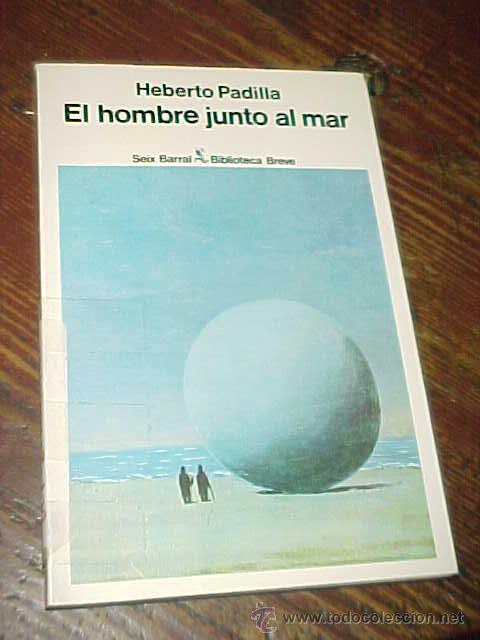4.1.3.4 Life and poetics of Heberto Padilla (1932 – 2000)

Heberto Padilla is undoubtedly one of the most outstanding poets that the Cuban emigration has had, due to the intensity and authenticity of his verses, in which his experiences inside and outside the Cuban revolutionary process are expressed, also as a representative of a sector of the population that did not accept political totalitarianism, despite sharing the embodied utopias of socialism that brought important material and spiritual achievements to Cuba.
The author has not been fully appreciated for his poetic quality and part of the honors received are due to the political stance he assumed almost a decade after the revolutionary triumph, in 1968, the year in which his book “Fuera del juego” was awarded the prize, itself controversial for containing poems labeled at the time as counterrevolutionary, yet holding the support of many intellectuals on and off the island.
Padilla had previously published “Las rosas audaces” (The Bold Roses) in 1941; “El justo tiempo humano” (The Just Human Time) in 1962; and “La hora” (The Hour) in 1964—the latter not always included when reviewing his lyrical work—in which his stylistic affiliation with the ups and downs of the 1950s generation can be seen, in terms of the neo-romanticism and colloquialism that marked the early years of the Revolution’s militant poetics.
The political influence of Padilla’s work became evident during the reading of the verses from “Provocations” in 1971 at the headquarters of the National Union of Writers and Artists of Cuba, located at 17th and H, Vedado, Havana City, when he was already working as a professor at the University of Havana, after the break that “Out of the Game” meant with respect to his work as a representative of the Ministry of Foreign Trade and other public offices he had held.
In 1970 he published “For the Moment” and in 1980 he definitively left his homeland, although his texts denote a deep connection with it that would endure from the sometimes nostalgic evocations of exile. His lyrical career would include in this last period “Man by the Sea”, a collection of poems that he published in 1981, a symbol of all his stays.
The bard also ventured into the novel genre with “In My Garden Heroes Graze,” also published in 1981, and the autobiographical text “Bad Memory,” in addition to “Dreams Never Come True” and other pieces. He also had a distinguished academic and journalistic career, the fundamental guidelines of which will be seen in other sections.
His death was unanimously mourned by the most reactionary sectors of the emigration and by the people and the official institutions of the Revolution, where, regardless of ideological differences, his worth as a poet is recognized.








